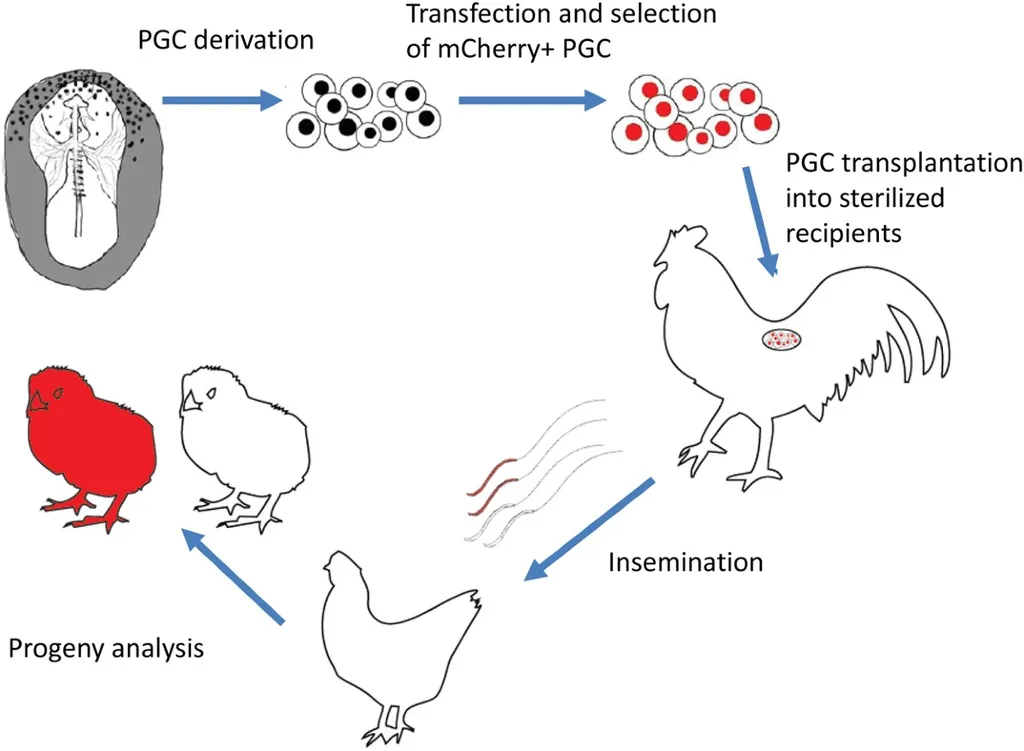In the realm of agricultural biotechnology, a recent review published in *Poultry Science* is shedding light on the potential of chicken germline cells, offering a glimpse into future advancements that could revolutionize poultry breeding and genetic manipulation. The study, led by Malik Ahsan Ali from the Key Laboratory of Animal Breeding, Reproduction, and Molecular Design for Jiangsu Province at Yangzhou University, delves into the identification, isolation, culture, and application of chicken stem cells, with a particular focus on chicken embryonic stem cells (cESCs), chicken primordial germ cells (cPGCs), and chicken spermatogonial stem cells (cSSCs).
The research underscores the unique advantages of using avian models, particularly chickens, for stem cell studies. “Chickens provide an accessible and convenient system for studying stem cells,” Ali explains. “The ease of accessing embryos and the availability of chicken eggs make them an ideal choice for researchers.”
The implications for the agriculture sector are substantial. By understanding and manipulating these stem cells, scientists can potentially enhance breeding programs, improve disease resistance, and increase the efficiency of poultry production. The ability to transform naturally available pluripotent stem cells or induced pluripotent stem cells (IPSCs) into desired cell types through genetic manipulation opens up new avenues for organ transplantation and genetic engineering.
One of the most promising aspects of this research is its potential to streamline the process of genetic manipulation in poultry. “This technology can serve as a baseline for stem cell technology in humans and other species,” Ali notes. By leveraging the insights gained from chicken stem cells, researchers can develop more effective strategies for genetic modification, ultimately leading to healthier and more productive poultry populations.
The commercial impacts of this research are far-reaching. Farmers and agricultural businesses could benefit from more resilient and high-yielding poultry breeds, while consumers could enjoy more affordable and sustainably produced poultry products. Additionally, the advancements in stem cell technology could pave the way for innovative treatments and therapies in human medicine, further underscoring the interdisciplinary significance of this work.
As the field of agritech continues to evolve, the insights provided by this review could shape future developments in poultry breeding and genetic manipulation. By harnessing the power of chicken germline cells, researchers are not only advancing our understanding of stem cell biology but also laying the groundwork for a more sustainable and efficient agricultural future. The study, published in *Poultry Science* and led by Malik Ahsan Ali from Yangzhou University, represents a significant step forward in this exciting and rapidly developing field.

